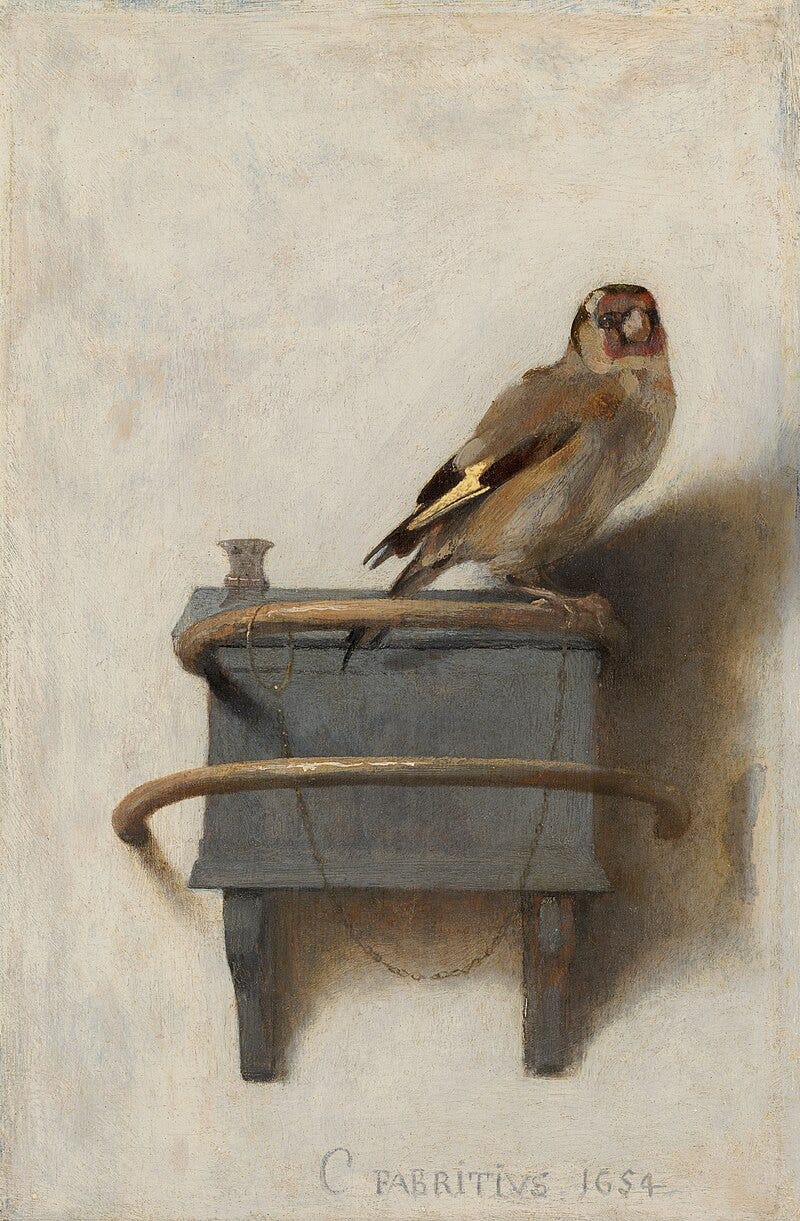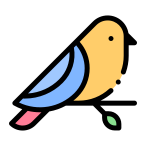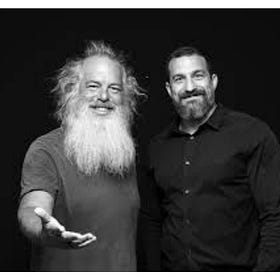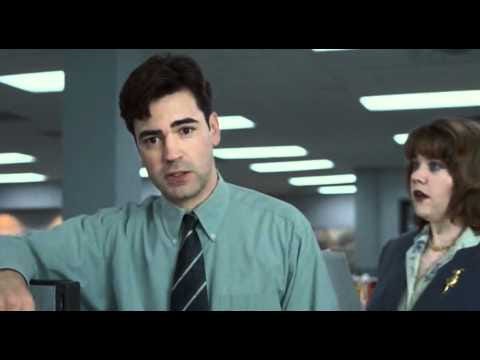🐤 The Goldfinch: "We don’t get to choose our own hearts."
From the protagonist in Donna Tartt's Pulitzer Prize-winning 2013 novel: "Why am I made the way I am? Why do I care about all the wrong things, and nothing at all for the right ones?"

I’ve been on a listening binge this week to a niche narrative podcast: Lili Anolik’s juicy Gossip Girl-style exploration of the unconventional Bennington College’s class of 1986, which graduated three notable novelists:
Bret Easton Ellis (most notable for Less Than Zero and American Psycho);
Donna Tartt (reclusive Pulitzer Prize-winning author of The Secret History, The Little Friend, and The Goldfinch); and
MacArthur Fellow Jonathan Lethem, author of Motherless Brooklyn and Brooklyn Crime Novel, among others.
I am late to Donna Tartt’s genius.1 It was only last May that I stumbled upon a lightly worn, yellowing copy of The Goldfinch while browsing in Lamplight Books, a used bookstore tucked into the labyrinthine hallways of Seattle’s Pike Place Market.
I paced the fiction shelves for nearly half an hour, scanning for just one that might jump out to read on my trip, even though I knew I had no business buying yet another book when so many sit unread on my shelves (it’s a compulsion, what can I say). Thankfully one finally did, after encountering a clue in The New York Times’ list of 📚 100 Best Books of the 21st Century earlier that morning.2
Once I cracked open the 771-page paperback I could not set it down, stealing time to read at every possible moment. I finished in four days. It’s a heartbreaking and beautiful Dickens-esque bildungsroman—a dark yet propulsive journey through New York City, Las Vegas, and Amsterdam—told by Theo, a 12-year-old boy who comes of age as the novel progresses, an unreliable narrator echoing Catcher in the Rye’s Holden Caulfield (my favorite book growing up).
This one page toward the end of the book left an emotional residue that still lingers—I share it here without much comment, so you can allow it to resonate (or not) as you wish:
“Why am I made the way I am? Why do I care about all the wrong things, and nothing at all for the right ones? Or, to tip it another way: how can I see so clearly that everything I love or care about is illusion, and yet—for me, anyway—all that’s worth living for lies in that charm?
A great sorrow, and one that I am only beginning to understand: we don’t get to choose our own hearts. We can’t make ourselves want what’s good for us or what’s good for other people. We don’t get to choose the people we are.
Because—isn’t it drilled into us constantly, from childhood on, an unquestioned platitude in the culture—? From William Blake to Lady Gaga, from Rousseau to Rumi to Tosca to Mister Rogers, it’s a curiously uniform message, accepted from high to low: when in doubt, what to do? How do we know what’s right for us? Every shrink, every career counselor, every Disney princess knows the answer: “Be yourself.” “Follow your heart.”
Only here’s what I really, really want someone to explain to me. What if one happens to be possessed of a heart that can’t be trusted—? What if the heart, for its own unfathomable reasons, leads one willfully and in a cloud of unspeakable radiance away from health, domesticity, civic responsibility and strong social connections and all the blandly-held common virtues and instead straight towards a beautiful flare of ruin, self-immolation, disaster? Is Kitsey right? If your deepest self is singing and coaxing you straight toward the bonfire, is it better to turn away? Stop your ears with wax? Ignore all the perverse glory your heart is screaming at you? Set yourself on the course that will lead you dutifully towards the norm, reasonable hours and regular medical check-ups, stable relationships and steady career advancement, the New York Times and brunch on Sunday, all with the promise of being somehow a better person? Or— like Boris—is it better to throw yourself head first and laughing into the holy rage calling your name?
It’s not about outward appearances but inward significance. A grandeur in the world, but not of the world, a grandeur that the world doesn’t understand. That first glimpse of pure otherness, in whose presence you bloom out and out and out.
A self one does not want. A heart one cannot help.”—THEO DECKER in The Goldfinch by Donna Tartt (page 761)
❤️3
Donna Tartt is famously private, publishing a novel only ever ten years or so; uncorroborated whispers are that there’s another due soon. She was “less than delighted” at self-described “Literary Assassin” Lili Anolik’s digging for the Bennington podcast series, sending “a spate of fire-breathing letters from her lawyers.”
As an aside, I love Anolik’s take at the start of that piece on the strange ritual of book blurbs:
“Here’s what a blurb is: you asking (read begging) a writer with a lofty reputation (loftier than yours, anyway) to bestow upon your book a few spontaneous (that is, semi-coerced) words of ecstasy. It’s you singing your praises in the voice of another, basically. That a person with even a modicum of self-awareness would submit to such a floridly craven, histrionically insecure practice is, to me, shocking. And yet it is the done thing, what editors and publishing houses expect.”
You can read more about Donna Tartt in this 2013 New Yorker profile by James Wood, “The New Curiosity Shop,” and listen to her on the only two podcast appearances I could find:
There’s also a 2019 movie version of The Goldfinch starring Nicole Kidman, but it largely fell flat, with The New York Post calling it an “epic wreck.”
Here’s the New Yorker again with Richard Brody on “The Wan Faithfulness That Made “The Goldfinch” Movie a Flop.” He writes,
“The adaptation has the dutiful air of a mere digest, shovelling a seven-hundred-plus-page novel into a two-and-a-half-hour film that ends up feeling both sluggish and rushed.”
For its launch in 2013, Stephen King wrote the New York Times Book Review piece, “Flights of Fancy,” describing it as follows:
“‘The Goldfinch’ is a rarity that comes along perhaps half a dozen times per decade, a smartly written literary novel that connects with the heart as well as the mind. I read it with that mixture of terror and excitement I feel watching a pitcher carry a no-hitter into the late innings. You keep waiting for the wheels to fall off, but in the case of ‘The Goldfinch,’ they never do.
. . . ‘The Goldfinch’ is a triumph with a brave theme running through it: art may addict, but art also saves us from “the ungainly sadness of creatures pushing and struggling to live.” Donna Tartt has delivered an extraordinary work of fiction.
That said, don’t drop it on your foot.”
A decade later, the Times’ 📚 100 Best Books of the 21st Century describes it as follows:
“For a time, it seemed as if Tartt’s vaunted 1992 debut, ‘The Secret History,’ might be her only legacy, a once-in-a-career comet zinging across the literary sky. Then, more than a decade after the coolish reception to her 2002 follow-up, ‘The Little Friend,’ came ‘The Goldfinch’ — a coming-of-age novel as narratively rich and riveting as the little bird in the Dutch painting it takes its title from is small and humble. That 13-year-old Theo Decker survives the museum bombing that kills his mother is a minor miracle; the tiny, priceless souvenir he inadvertently grabs from the rubble becomes both a talisman and an albatross in this heady, haunted symphony of a novel.”
Liked it? Try “Freedom,” by Jonathan Franzen or “Demon Copperhead,” by Barbara Kingsolver.
If you enjoyed this post, you might also appreciate:
💬 Is "Just Be Yourself" Good Career Advice?
Last month, Stanford neuroscientist-turned-chart-topping-podcaster Andrew Huberman made appearances on two shows proffering one particular piece of advice that made me spit out my coffee, passed down from music producer and fellow podcaster Rick Rubin.








As I am old I have some perspective on this.
We are all flawed in different ways. We like things that get our attention. Bad things are interesting. Contemplating them for the depressed or obsessive is hoping to add to the mental archive of things to avoid, or that might be dangerous. So, we look for more things like that. Avoid, manage the fear. Control life!
I have some bad news. Life is dangerous. Death is inevitable. We try and get as much life as we can, but there never exists complete control.
So then life becomes a control game. Some worry, some try and get as much fun and interest out of the time they have. Some, like myself in my youth, look for danger and excitement to make exclamation points in their existence. I'm still surprised I survived my folly, but that's another issue.
In the book "the Denial of Death" by Becker, you only have two choices. To Live or to Die.
The rest, is just bargaining.
How do we do it. Hiding, avoiding, blaming, fearing. Or trying to live full throttle ignoring the risks (I recommend skipping this one, ask me how I know) or accepting the inevitability of finite life, and trying to live a balanced existence, acknowledging the fear but also recognizing the positive times, when the occult fear of dying does not color the joys , or satisfactions, or even times of quiet peace in your life.
This is the balanced adult transformation. Not always easy to achieve. It came to me over a long time. Take a deep breath. Say, OK, I won't live as a carefree youth forever. What can I do now......
I always love your book and podcast recommendations! The passage you provided from The Goldfinch is irrestible. Trying to buy less books this year and use my local library more. It's in my queue. ;-)